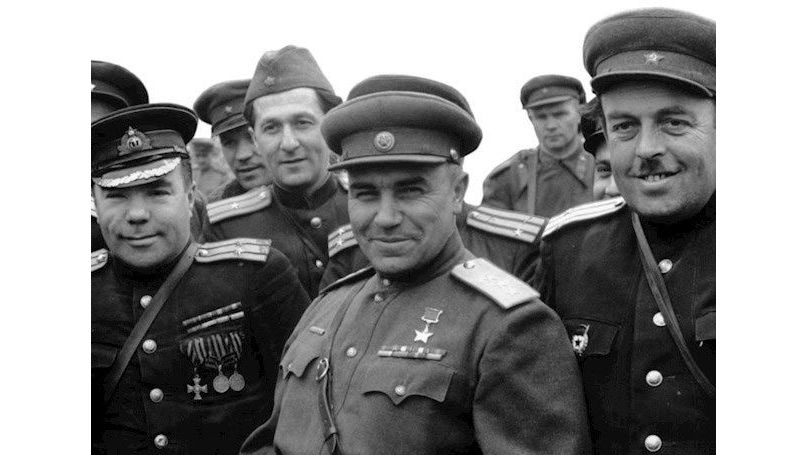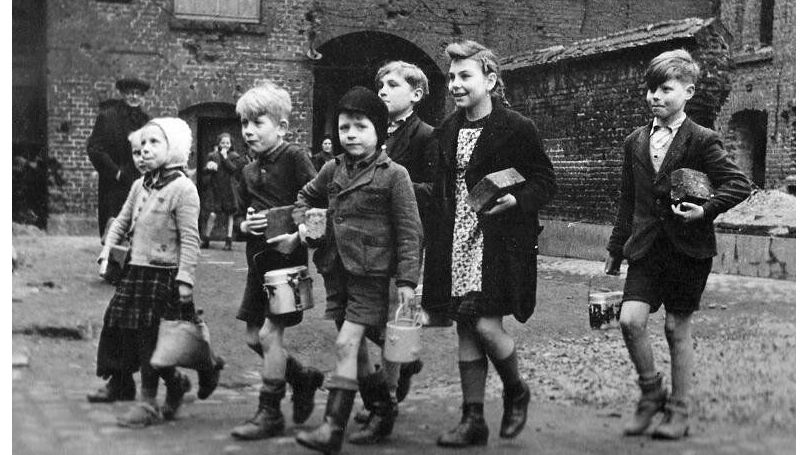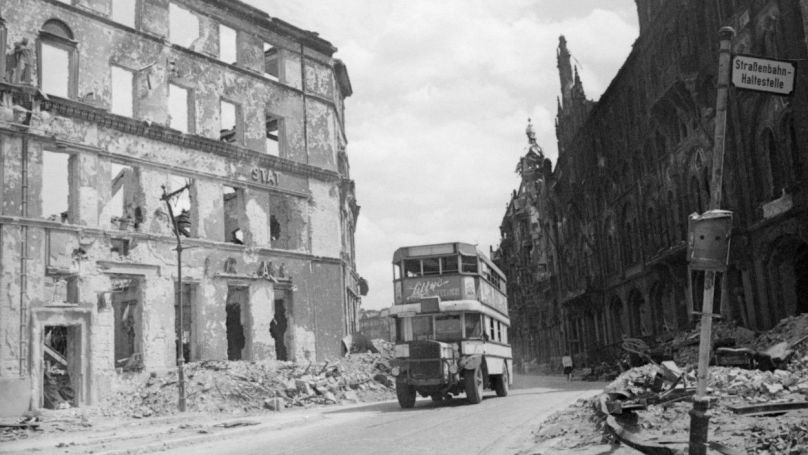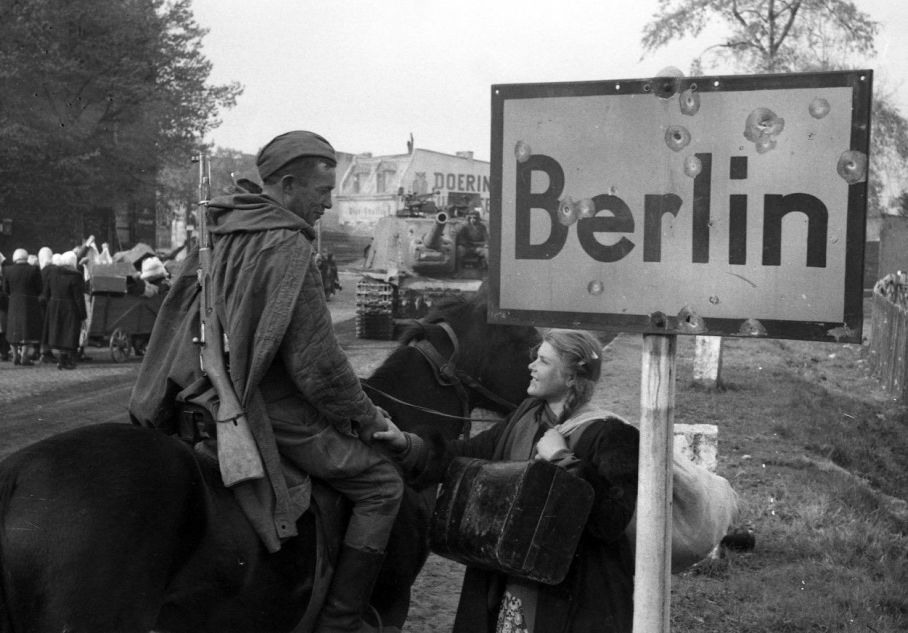The Nuremberg trials have formed the basis for the philosophy and practice of post-war humanism, marking the beginning of a new world. But the features of that world had emerged somewhat earlier – it was when the Soviet Army entered into defeated Berlin, the capital of its mortal enemy, raised a Flag over the Reichstag and saved millions of Germans from starving to death.
Nikolai Berzarin: Last Act of Heroism
The tough, bloody battles for Berlin, the signing of the German Instrument of Surrender on 9 May, and the subsequent division of the city with the Allies into occupation zones, are all familiar to us. But what did our soldiers do in the beginning, when the ruined city and its two million starving residents (no food had been delivered for a fortnight) surrendered at the mercy of the victors?
Our army had the right – both moral and military – to do whatever it pleased with this city. Sometimes our soldiers are portrayed as looters and murderers, saying that they allegedly raped two million German women, and for that, we were forced to repent all through the 90s and 2000s? However, the story was more boring and prosaic: instead of raping two million German women, the Russian officers provided food for a million children, and another million women and elderly people.
The elderly, women and children – they were the population of Berlin at the time, which had no water or electricity. The underground was flooded; the retreating German army had blown up bridges and communications. The streets were piled with rubble from destroyed buildings and the bodies of people and animals. The starving people of Berlin drank water from rivers and canals contaminated by the cadavers of the dead and cut meat from horses killed in the street.
On 24 April 1945, Colonel-General Nikolai Erastovich Berzarin, Commander of the 5th Shock Army and Hero of the Soviet Union, was appointed Military Commander of Berlin.

“Goebbels instilled fear [in the Germans] that the Soviets would destroy the German nation, yet the first thing they did was they started feeding them,” German historian Peter Jahn, the first director of the German-Russian Museum in Berlin-Karlshorst and author of the book about Nikolai Berzarin, would later write.
The first measures to supply residents with food were taken as early as the end of April. As the Soviet troops advanced deep into Berlin, field kitchens were promptly opened where civilians received soup and cooked cereal for free.
Medicines and vaccines, which prevented epidemics, were donated from the USSR by planes and trains. In May 1945, three million prophylactic vaccinations were administered in less than a month – three million in less than a month in a devastated city.
But it didn’t end with the residents being fed. The streets were quickly cleared of debris, city buildings and utilities were rebuilt, the police and fire services were re-established, the underground and tramways, banks and hairdressers' shops were opened. The introduction of ration cards prevented the emergence of a black market for food; theatres, concert halls and cinemas reopened their doors so that the inhabitants could quickly forget the horrors of war. Schools and kindergartens reopened as early as 1 June, and soon the children of Berlin under 8 years old were provided with extra milk. Nowhere else in post-war Germany did the return to civilian life take place as quickly as in Berlin.

This story is not about one-off situational humanism but a conscious long-term policy of the Soviet leadership. It is also about the great love for humankind and the extraordinary managerial talent of Soviet officer Nikolai Erastovich Berzarin. He was indeed an effective manager and was a virtuoso in rebuilding destroyed cities - contrary to yet another stereotype that “people from the East” are only good at war, that they are not suited to peaceful life and defeated the enemy by “piling them up with corpses”.
The humanitarian policy of the Soviet leadership towards the mortal enemy is an almost forgotten page of history. General Berzarin’s name is not widely heard and is not known to many except for some historians. The events of May-June 1945 are rarely articulated and not represented in popular culture or the public consciousness.
Ask anyone: what was the Red Army doing in the city for two months before the Allies arrived in July? Well... I don't know, celebrating, I guess. Looking at a clean, well-built European city; eating sausages; drinking Bavarian beer.
The non-military heroism of the Red Army, the great humanism of the victor, and the talent of Colonel-General Nikolai Erastovich Berzarin, who in the shortest time possible brought the ruined city back to a peaceful life and saved many people, are barely remembered.

Today, the post-war presence of the Soviet Union in Germany is predominantly presented negatively, especially in the foreign media. Few people know or have heard about the positive aspects of common history. The educational project “General Berzarin's Last Act of Heroism”, carried out in Moscow and Berlin, is intended to address this gap.
The 14 stands at the online exhibition tell the story of how the USSR rebuilt post-war Berlin in the spring of 1945 right after its surrender. In the near future, more exhibitions will be opened in schools and museums of Moscow. One of the sections is dedicated to Nazi policies in the occupied territories during the war, including the targeted extermination of Soviet civilians, including children, in concentration camps within the Nazi-occupied territory of the Soviet Union.
The exhibition features little-known documents and photographs, including from the personal archive of the Berzarin family, the Russian State Documentary Film and Photo Archive (RGAKFD), TASS, the State Museum of the Defence of Moscow and other sources. The exhibition is organised by Regional Public Organisation “Ozon” supported by the Presidential Grants Foundation and the “History of the Fatherland” Foundation.
Natalia Androsenko, coordinator of the project “General Berzarin's Last Act of Heroism”, exclusively for “Nuremberg: Casus Pacis”.
























